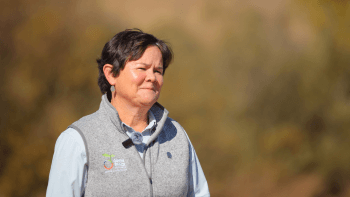Understanding Our Community Phase II Report Release
Creating Equitable Open Space Access by Investing in Underserved Communities
SAN JOSÉ, Calif. (AUG 20, 2020) Today, the Santa Clara Valley Open Space Authority (Authority) releases its Understanding Our Community Phase II Report, a framework that builds on the Phase I report published in 2015, and has guided strategic conservation investments that has helped communities overcome barriers to accessing nature.
“The Authority is excited to roll out Phase II of its community assessment report that provides new information about park access, human health, qualitative cultural community input about open space priorities, and other factors that help illuminate ways in which the Authority and community organizations can focus nature-based investments to help those most in need”, said Marc Landgraf, External Affairs Manager for the Authority.
The Phase II report could not have happened without the dedicated collaboration of the Authority’s key partners, including: The Trust for Public Land, Health Trust, the Santa Clara County Public Health Department, New America Media, and the San Francisco Estuary Institute (SFEI). The new data in the Phase II report will strengthen the Authority’s ability to increase equity in access to nature through its community partnerships, and will guide applicants to its Urban Grant Programs. The report is also anticipated to serve as a resource to other local and regional organizations as awareness grows about the health benefits of nature.
Key Findings: Phase II took a deep dive in understanding community needs by addressing these critical questions: 1. What do local communities need in order to more easily access and enjoy nature and open space? 2. How can increased access to natural spaces positively impact the health and well-being of residents in our local communities? The Authority chose to prioritize four main categories for deeper consideration: Proximity and Access, Food and Nutrition, Health, and Safety.
Access: Experiencing ambulatory difficulties, not living within close proximity to protected lands, being outside of a 10-Minute Walk Service Area, and having no private vehicle access are all significant barriers to accessing natural spaces and the opportunities that they can provide. The Authority recommends the consideration of these factors – and provides data to evaluate them – when prioritizing investment in increasing access to natural areas.
Food and Nutrition: The establishment of community gardens and urban farms increases not only access to healthy food, but also the opportunity for physical activity and venues for environmental learning. In addition to providing fresh fruits and vegetables, school gardens can also provide an opportunity for students to connect with the land, learn about sustainable food systems, and foster a sense of responsibility and stewardship for the natural places that provide for them.
Health: Due to the correlations between inactive lifestyles and weight gain, heart disease, and other health problems, the Authority can play a role in helping lower these risk factors by increasing access to spaces that promote healthy activity and natural surroundings.
Safety: Residents consider safety a top concern when thinking about visiting local parks, trails, and other natural spaces. The data in this report can be used to identify areas where the development of new trails, parks, community gardens, and urban farms, could reduce proximity to vehicles that tend to increase risk of injury.
Urban Grant Program
This competitive grant program, funded by Measure Q, overwhelmingly passed by voters in 2014, and informed by the Understanding Our Community report, addresses the open space needs of urban communities, especially in those areas that currently have limited access to preserves and parks. The grant program aims to fund projects that will improve the quality of life for urban residents. Through the Urban Grant Program, the Authority continues to invest in the innovators and leaders in the community who are creating positive change for their neighbors.
The Urban Grant Program has been making important investments in underserved areas to improve equitable access to nature. One such grant from the program helped launch the San Jose Children’s Discovery Museum’s Happy Trails, a free, multiple-experience program in English, Spanish, and Vietnamese provided to nearly 200 children and adults to address the lack of opportunities for today’s urban children to connect with nature.
"With funding we received from the Authority's Urban Grant Program, we developed a program that introduced nature to many grateful Spanish and Vietnamese-speaking families and children who had numerous barriers to experiencing nature," said Marilee Jennings, executive director of Children's Discovery Museum of San Jose. "The Authority's work in connecting children with nature is remarkable and I look forward to phase II of their report."
To view the full report, click here.


